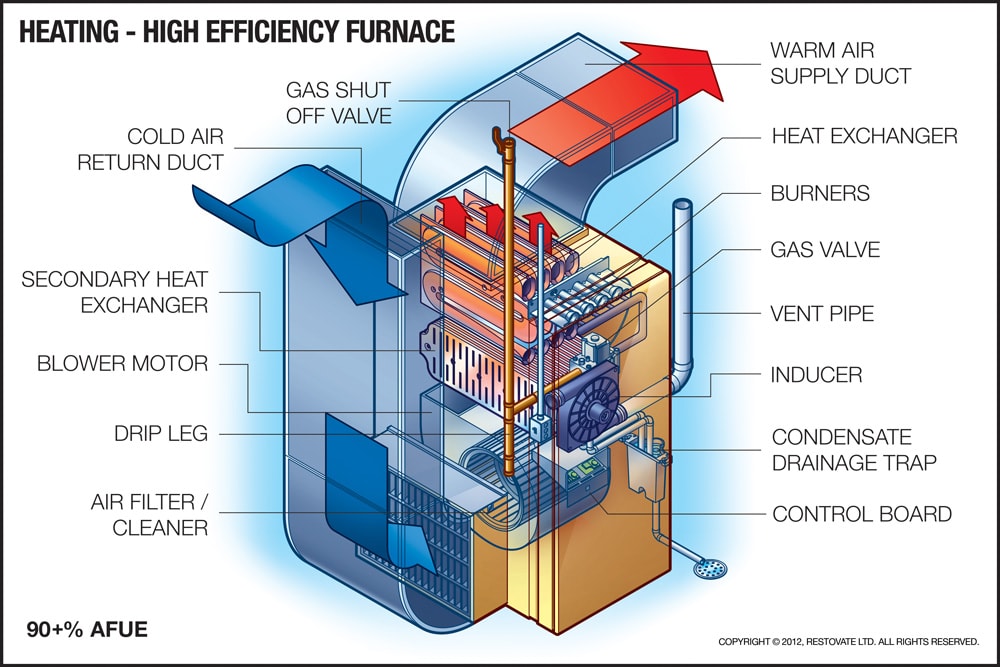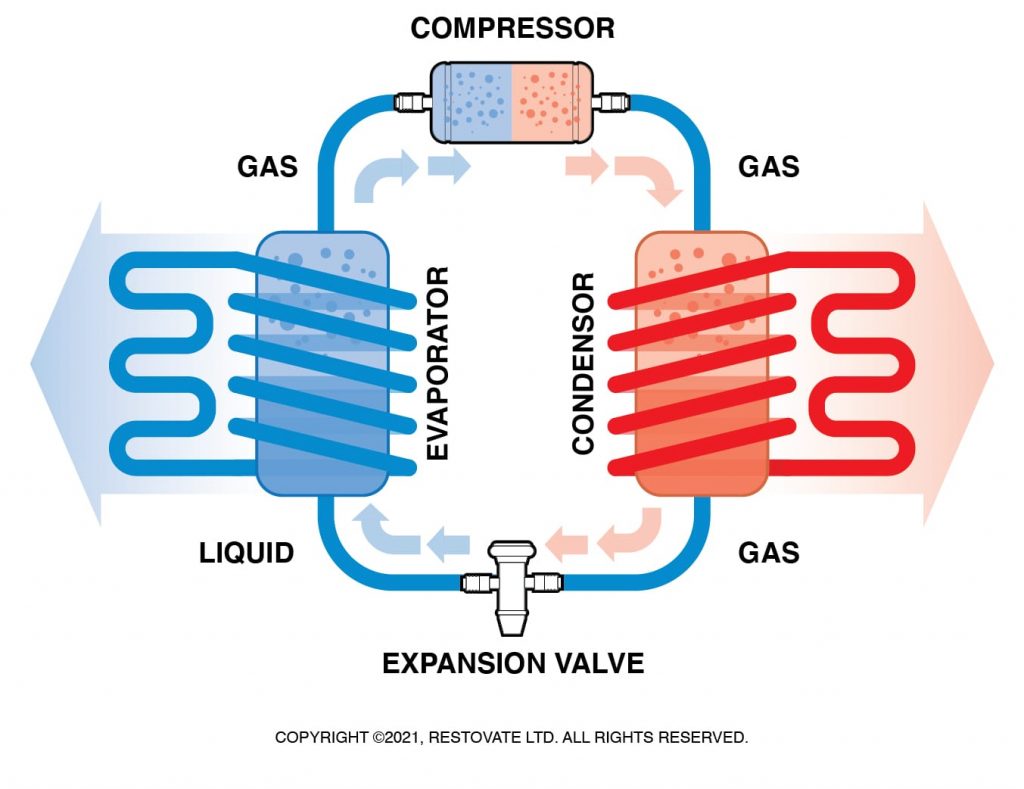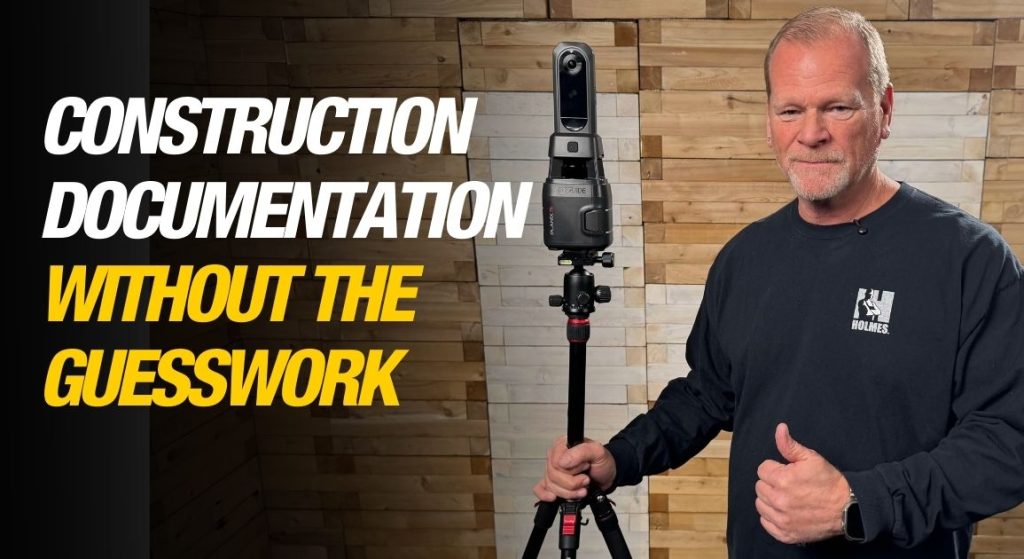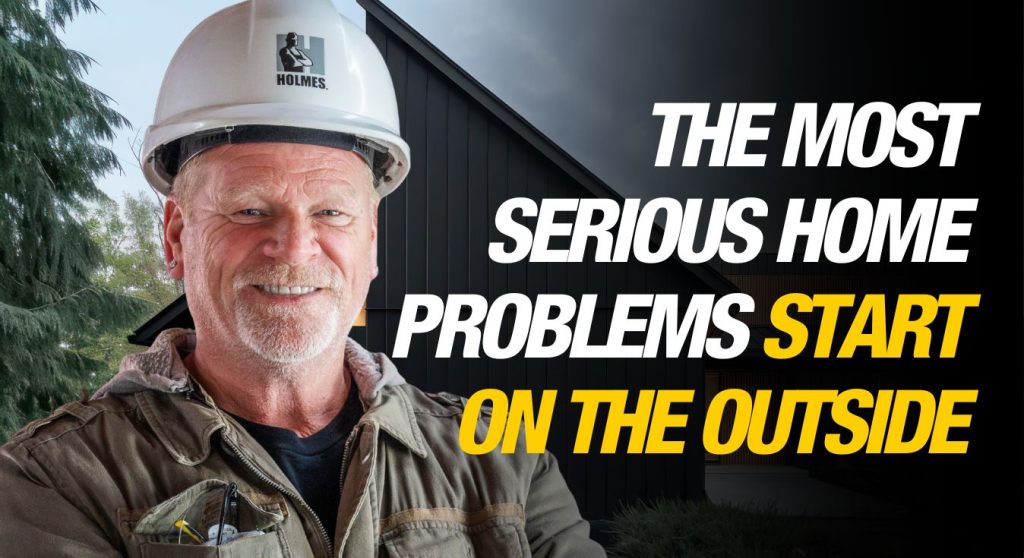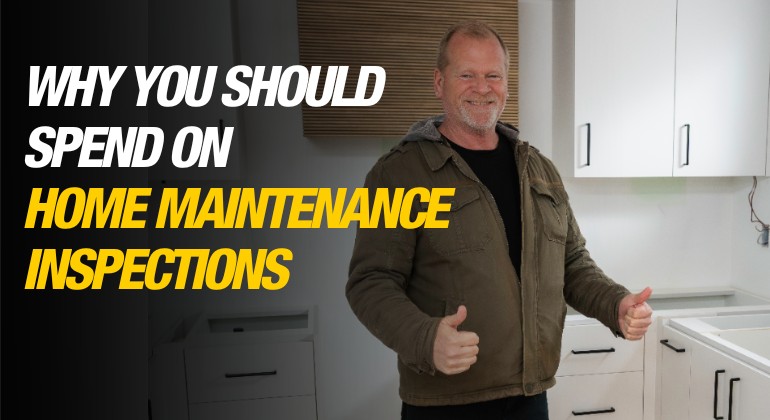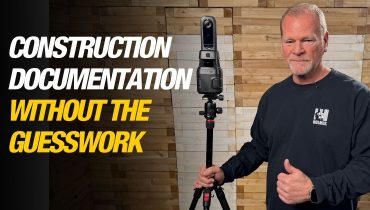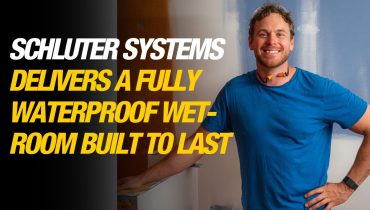I love exploring new technology—especially when it genuinely improves how we work in construction—and I recently came across one that truly impressed me, iGUIDE by Planitar Inc. In my...

What You Need To Know About Boilers For Heating
By Mike Holmes
Mike’s Advice / Home Renovation
Monday, December 13th, 2021 @ 3:12pm
Boiler Buying Guide – How to Choose the Best Boilers for Your Home
Boilers are central heating systems. Most of us heat our homes with a furnace or boiler. Your boiler system is a continuous circuit, that pumps hot water out from the boiler, through all the radiators or heat emitters, and then returns it back to the boiler to pick up more heat. In this article, I am going to explain what a boiler is and what to look for when buying one.
What is a Boiler?
A boiler heats up water and pushes it throughout the home for heating purposes. It uses a fuel source to heat water; this water is pumped through your hydronic heating system to various devices like radiators, in-floor heating loops, or baseboard emitters to heat your home. A radiator can be made of cast iron, steel or copper, and is designed in a way that creates a large surface area through which heat can enter a room.
The boiler can also be used as your home’s water heater, to provide hot water for your kitchen, bathrooms, and laundry needs. Most boilers that do heat your home and your water, are often referred to as combi boilers.
Boiler heat does not require ductwork and is often found in older homes that pre-date air conditioning.
I want you to consider installing a boiler if you are living in a cold climate.
Unlike air-to-air heating methods, there is typically a small lag time between the boiler turning on and the heat being dispersed in the home. But make no mistake – hydronic heating is the most comfortable and efficient form of heat.
How Does A Boiler Work?
When it’s time to heat your home, simply switch on and adjust your thermostat to the desired temperature, and the thermostat will then turn on the boiler as needed.
Here’s a closer look at how boilers work to heat your home:
- Natural gas (or propane) enters the combustion chamber via small jets. Picture a big fire that has a continuous supply of gas provided from a pipe that goes out to a gas main on the road, or a propane tank in the backyard.
- An electric ignition system lights the burner.
- The flame runs through a heat exchanger in the boiler connected to the hydronic system that circulates water through the house.
- The heat exchanger takes the heat energy from the flame and heats the water in the hydronic loop.
- One or more electric pumps push the heated water through the hydronic system.
- The water flows through each radiator or heat emitter. It enters at one side and exits at the other.
- As each radiator gives off heat, the water cools down as it leaves the radiator. This cooler returning water is sent back to the boiler to grab more heat. Think about it this way, the water is the vehicle that transports the heat from the fire in the boiler and drops it off at each radiator. The pumps are powerful enough to push the water anywhere in the house.
- A thermostat monitors the temperature and will switch the boiler off when the room is hot enough. On the flip side, it switches the boiler back on when the room is cold.
The cool thing about hydronic heat is that you can have multiple thermostats or “zones” to control temperatures in any given room or floor depending on how much control you want. So the bedrooms could easily be kept cooler than the family room when using a boiler system.
What are the Types of Boilers?
My best advice is always do your research, check out high-quality brands, and work with an HVAC professional. Consider brands that offer a selection of boilers, including atmospheric gas or oil-fired cast iron, and gas condensing boilers. So, what’s the difference between the different types?
Gas Atmospheric Cast Iron Boilers
Today’s atmospheric boilers are fueled by natural gas or propane and are relatively efficient compared to decades ago. Modern Buderus gas boilers run at a minimum of 85% efficiency. However, natural gas is not available everywhere, and some homeowners who are located at the end of a gas pipeline may find themselves paying higher fuel prices. Propane typically is more expensive than natural gas, but it’s available throughout the U.S.
Oil Atmospheric Boilers
If you buy an oil-fired boiler, you’ll need heating oil delivered and stored in tanks like the one above, and your operating costs will be affected by the rise and fall of oil prices. Buderus atmospheric oil boilers are 87% efficient. These boilers are still very popular in the Northeastern USA.
Gas Condensing Boilers
Condensing boilers fueled by natural gas or propane are VERY efficient, often running at 95% efficiency. A condensing boiler takes advantage of the fact that when the fire burns at a lower temperature, it can condense and make water vapor that is used to pull more heat energy out of the heat exchanger. This increases efficiency and saves on gas or propane use over the life of the boiler. Condensing boilers also draw in outside air to burn, meaning less heat loss from your home.
Electric Boilers
Electric boilers are highly energy efficient. However, they typically are not economical because electricity costs more than other fuel types in many parts of the country. If you are interested in electric heating, consider a heat pump.
Condensing Combi Boilers
Condensing combi (or combination) boilers are becoming very popular due to their small size, high efficiency of 95%, and ability to do two things at once. They supply hot water directly to your kitchen and bath without the need for a storage tank and still have a main hydronic loop to heat the home using radiators or other heat-emitting systems.
They are also cost-effective and space-saving (in the case of the wall-mounted models). Singular combi boilers can run up to three showers and a dishwasher simultaneously, depending on the incoming water temperature. It also has a 95% AFUE rating (more on that below). Combi boilers are space-efficient because they don’t have a water tank and mount on a wall, creating more space in a basement for other uses. If you decide to go with a combi boiler, I say that’s a good choice.
Condensing Boilers Vs Non-Condensing Boilers?
Your boiler is either condensing or non-condensing. Keep reading for an explanation of the differences.
Condensing Boilers
A condensing boiler concentrates water vapor produced in the heating process. It also uses waste heat to preheat cold water entering the unit.
A condensing boiler takes advantage of the fact that when the fire burns at a lower temperature, it can condense and make water vapor that is used to pull more heat energy out of the heat exchanger. I love condensing boilers. They are very energy efficient (greater than 93%) because they can provide heat while operating at lower temperatures.
Condensing boilers can also modulate, or change the amount of energy put out by the heat exchanger, which turns into energy savings for your house. On a mild fall day, these boilers can use a lot less energy to heat the home. On the coldest winter nights, they can increase the amount of energy they produce to keep you warm.
Non-Condensing Boilers or “Atmospheric” Boilers
Many non-condensing boilers typically operate at higher temperatures of 160 to 190 degrees. Some heat ends up being lost because it is being vented outside. An atmospheric boiler always pulls already heated air from your home to create fire, so you lose energy there too. A non-condensing boiler has lower upfront costs, but you are looking at a reduced efficiency of about 80-87% with a non-condensing boiler.
Advantages of Condensing Boilers
Energy Savings
A condensing boiler has a higher upfront cost, but you will see the savings in your energy bills. You will spend less to maintain the same comfort level for your home because the boiler can modulate from low to high fire depending on the outside temperature, or by how fast your house warms up.
In certain areas, it is actually the law to install condensing boiler if you are replacing your old one.
Better For The Environment
The heat passing through your boiler’s flue contains carbon dioxide. A condensing boiler recaptures much of the heat that is released compared to a conventional atmospheric boiler. As a result, it does less harm to the environment.
Furnaces Vs Boilers
A furnace uses fuel (gas, oil, or electricity) to create heat. The heat is transferred to your home via a heat exchanger. This heated air is then distributed throughout your home by a series of ducts. Simply put, a furnace will heat your air and then distribute it through your ducts. Heating the air is certainly popular in the US and Canada, but it is not the most efficient form of home heating.
READ MORE
A boiler uses a fuel source to heat a fluid. The fluid is then pumped through your hydronic heating system. You don’t need ductwork to install a boiler. A boiler can also be used as your home’s water heater.
A boiler provides more consistent and efficient heat. Plainly put, hydronic radiant heat is the best form of heating a home. Boilers are also quieter than furnaces since there is no fan to move air through the house. With a furnace, you have to change or clean the filters. You don’t have to worry about that with boilers, so it’s less maintenance for you.
Heat Pumps and Boilers for Heating
A heat pump is an HVAC system that uses refrigeration and electricity to provide heating and cooling to a home. Heat pumps use electric energy and refrigerant for power.
A heat pump can heat AND cool your home. Heat pumps can distribute heat via air ducts, radiators, or radiant flooring. The ductless mini-split heat pump (which I had installed at my new project) uses a zoning system to heat and cool a specific space.
Here is more information on how a heat pump works.
Boilers can work with any type of existing conventional energy source (oil, natural gas, propane, electricity, biomass pellets). They work with radiators, coils, or radiant flooring to dissipate the heat to your home.
What is a Boiler’s Efficiency?
Boilers are rated with an annual fuel-utilization-efficiency (AFUE) score. This indicates how much energy is being converted into useable heat. New boilers are required to have an AFUE rating of at least 82 percent. High-efficiency models are 90 to 98.5 percent efficient.
Remember, the higher the rating, the more you are paying for the unit, but the lower the operating cost. We recently installed a boiler on one of our jobs that has a 95% AFUE efficiency score.
In simple terms, a decades-old boiler might only be 70% efficient, meaning for every dollar you spend in gas, 30 cents goes up the chimney. A modern Buderus atmospheric cast-iron boiler raises that to 85%, with only 15 cents on the dollar going to waste. A condensing boiler like Greenstar or Singular wastes only 5 cents of every dollar!
How to Boost Your Boiler’s Efficiency?
There are many ways to boost your boiler’s efficiency. I would start by making sure the rest of your home is as energy-efficient as possible. Once you have done this, you may find that you need to buy a smaller boiler model than you had initially expected.
Here are some tips to make your home overall more energy-efficient:
- Add insulation to your attic and walls.
- Add weather stripping around doors and caulk around windows to keep heat from escaping. Replace single-pane windows with thermo-pane ones.
- Properly insulate cooling system ducts in crawl spaces and attics.
- Clean your chimney.
- Set your ceiling fans to spin clockwise to blow rising heat down.
- Use programmable thermostats. They can automatically lower the temperature while you are away. You can enjoy savings of around 10% annually on your heating bills.
READ MORE
What to Consider When Buying a Boiler?
Climate
If you live in a fairly warm climate, you may not need a central heating system. In that case, I recommend a heat pump. Heat pumps can heat AND cool your home.
RELATED
Size
This is important when choosing a boiler. The size of your boiler is as important as its efficiency. If the boiler is undersized, it won’t work efficiently. If it is oversized, you are paying more to heat your home.
Talk to your heating and cooling professional. They will do a calculation to determine the right boiler type and size. The calculation will take into consideration a lot of factors about your home, such as your foundation, wall thicknesses, insulation values, windows, air filtration, and more.
Fuel Type
Gas-fueled boilers typically cost less to operate than oil-fueled ones. This is true if heating oil prices are high. However, the fuel type you choose depends on what you have available in your region.
Cooling
Boilers only provide heat. If you want a unit that will act as a cooling system, you should consider a heat pump or get a cooling system.
An Energy Star certified gas boiler uses 10% less energy according to National Resources Canada. ENERGY STAR certified products also are tested to meet strict efficiency specifications and are certified by an independent third party.
Tips to Use and Maintain Boiler System
Annual service and proper maintenance is the key to a healthy, functioning boiler. Here are my top maintenance tips for homeowners and contractors. Do these things, and any boiler will be sure to last for years to come.
Boiler Maintenance for Homeowners
If you are a homeowner, please remember to get your boiler inspected annually by a qualified, licensed technician. I cannot stress enough how important this is. Think of it as getting your car inspected. Annual service on your boiler will help your technician to catch problems early and can extend the life of your boiler for up to approximately 25 years.
Between service checks, keep an eye out for anything unusual with the unit. Is your boiler making weird noises? Is there water on the floor? Has your utility bill skyrocketed for no apparent reason? All of these are warning signs that your boiler could be malfunctioning.
Boiler Inspection
If you are a contractor, here are some things you should look for when inspecting a boiler.
- Open up the boiler and examine the heat exchanger. Note how long it has been since the last check. Make sure there are no leaks.
- Every five years, use a cleaning kit that includes the scraper blade and nylon brush to clean the heat exchanger. You will rinse it clean with water; no acids are needed for this model!
- Remove the igniter assembly and inspect for decay or degradation. Replace after when worn or after 5 years.
- Inspect the burner for any wear or discoloration. If you see an uneven pattern of discoloration, this could indicate a flame problem. Check combustion gases with an analyzer to ensure the air/fuel mix is perfect.
- Remove the condensate trap completely from the bottom of the unit. Flush it out, making sure there are no obstructions and that the condensate from the boiler can flow freely.
- Make sure that the ejection hose coming from the condensation trap is clear and free of obstruction down to the condensate pump.
- Perform a combustion analysis. This is the MOST important step to keep a condensing boiler working for many years.
- Check the pH of the boiler system water. It should be 7-7.5 pH.
In terms of the boiler system, make sure to check the magnetic filter separators and clean them. Also, take a look at the air inlet and exhaust outside of the house. Then, inspect the system pumps or zone valves to make sure they are working. Lastly, check the expansion tank pressure to make sure it is correct.
Which Boiler is Best for My House?
If you’re looking to upgrade your hydronic heating system I highly recommend looking into condensing boilers. These type of boilers are more energy-efficient systems that will help you save on your energy bills down the line which to me sounds like the right choice to make. Not to mention, if you buy a combi boiler, you’ll be able to heat your home and have an endless supply of hot water all in one.
READ NEXT
Floor Heating Systems Explained
Heat and Energy Recovery Ventilators (HRV and ERVs)
New Year’s Resolutions For Your Home


